If you’re a science student or you work in a science lab, you’d know how important is to have a compound microscope. If you want to study the structure of cells and microorganisms, you can find microscopes that have a magnifying power of 40x up to 1500x. Which compound microscope should you buy depends on the sort of specimen you’re working on. In this article, I’ve shared the seven best compound microscopes that can help make your science class way easier and more fun.
7. AW 40X-2500X LED Lab Binocular Compound Science Microscope ($149.95)
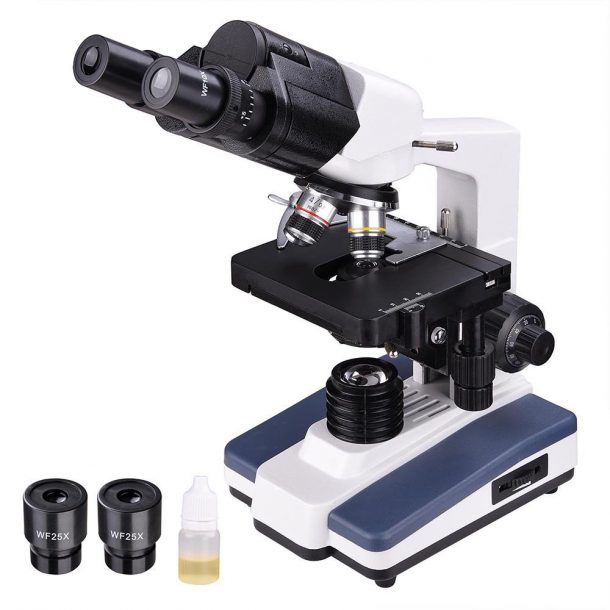 Image Credits: Amazon
Image Credits: Amazon
This compound microscope comes with six widefield magnification settings that include, 40x, 100x, 250x, 400x, 1000x and 2500x. It also has four achromatic objectives that are, DIN 4X, 10X, 40X(S) and 100X(S, Oil). You get two pairs of widefield eyepieces with this compound microscope. It’s equipped with a professional 30 degree inclined & 360 degrees swivelling binocular head. It also provides you with an adjustable interpupillary distance.
Available here
6. AmScope Optical Glass Lens Compound Microscope ($69.00)
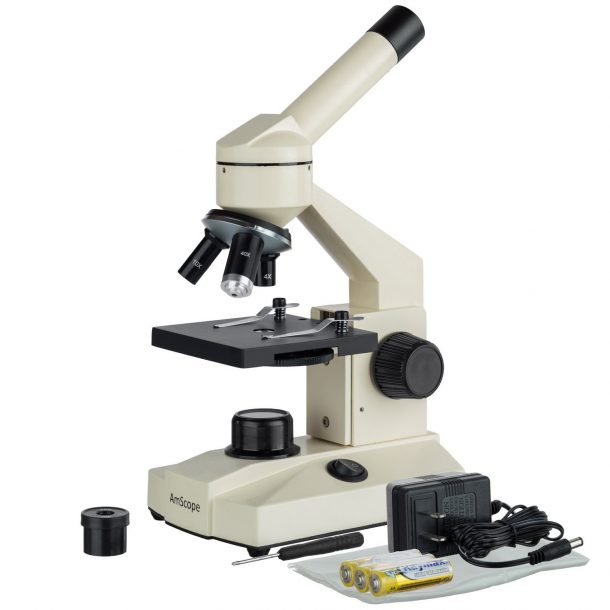 Image Credits: Amazon
Image Credits: Amazon
This compound microscope gives you five magnification powers up to 1000x. It has a 45-degree inclined and 360-degree Rotatable Monocular Head. It comes with a single lens condenser with Disc Diaphragm. This compound microscope has a metal framework. It’s equipped with a built-in LED Illumination which makes your work more convenient.
Available here
5. Extpro Compound Microscope ($20.95)
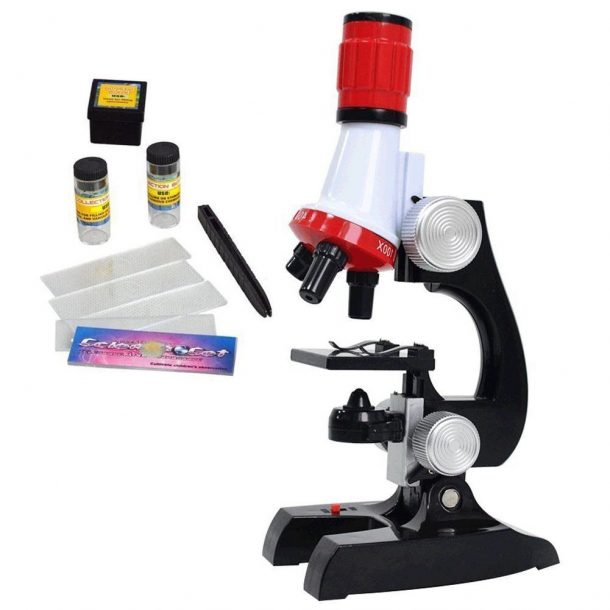
Image Credits: Amazon
This is a beginners compound microscope which provides high magnification up to 1200x. This compound microscope helps you explore and discover the scientific world with fun. It has a monocular viewing head with LED. It comes with a multi-piece accessory kit. It requires 2AA batteries to operate.
Available here
4. Celestron CM800 Compound Microscope ($69.95)
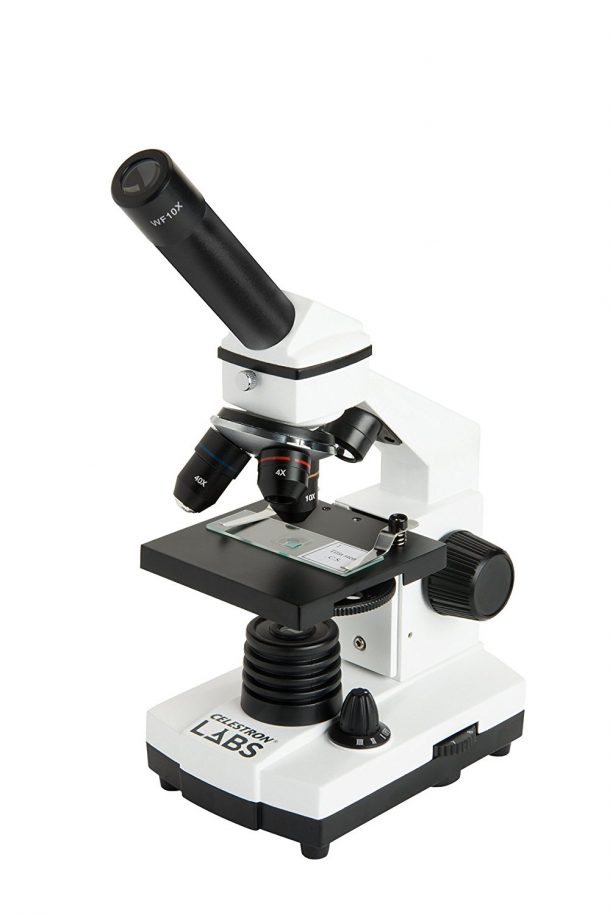
Image Credits: Amazon
This compound microscope is lab-ready equipment that has a magnification power of 800x. It comes with two eyepieces that include a 10x and a 20x eyepiece. It comes with 4x, 10x and 40x objective lenses. You can view your samples and specimens at 40x, 100x, 250x, 400x and 800x magnification. It has a built-in upper and lower LED illumination which is adjustable. To operate this microscope, just insert 3 AA batteries, and you’re good to go. On buying this equipment, you also get 10 prepared slides.
Available here
3. OMAX Awarded Compound Microscope ($193.95)
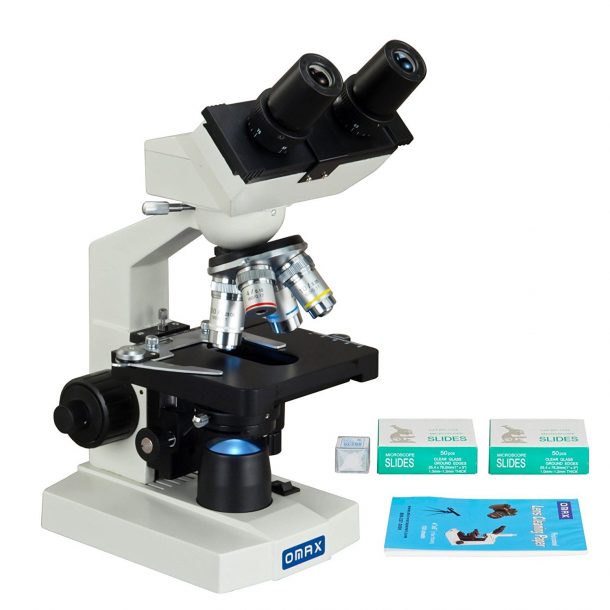
Image Credits: Amazon
This compound microscope offers you eight magnification powers starting from 40x to 2000x. It has two wide field eyepieces. The viewing head is 45 degrees inclined with 360 degrees swivelling binocular. It also gives you a sliding adjustable interpupillary distance of 2-3/16 inches to 2-15/16 inches. The ocular diopter is adjustable on both eyetubes. The nosepiece is a revolving quadruple, the stage is a double layered X-Y mechanical stage with scales of sizes 4-1/2 inches and 4-15/16 inches. The stage is equipped with an upward moving lock which helps protect the objectives and slides.
Available here
2. AmScope Student Biological Compound Microscope ($84.98)
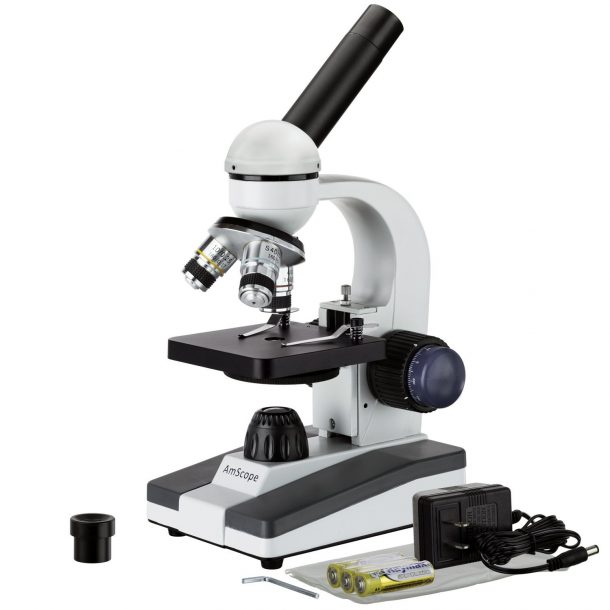
Image Credits: Amazon
This compound microscope is an ideal equipment for students of elementary to high schools. It comes with a 360-degree rotatable monocular head that offers you five magnification settings which are 40x, 100x, 250x, 400x and 1000x. Its widefield all optical glass elements include single-lens condenser with a disc diaphragm. It is a strong compound microscope having a complete metal structure. An LED illumination system helps give you a clear viewing experience of your specimen.
Available here
1. My First Lab Compound Microscope ($70.00)
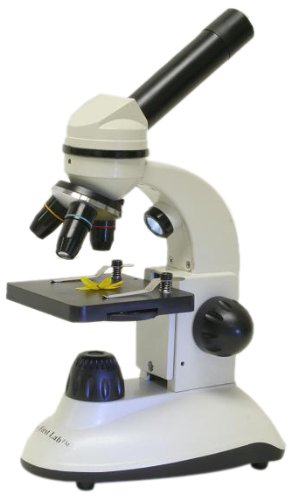
Image Credits: Amazon
This compound microscope is a 50-piece science accessory and experiment kit. You can view 3D objects. It comes with a powerful magnification and clarity with a 10x eyepiece that can magnify your specimen up to 400x. It is lightweight and easy to carry around. This device supports STEM (science, technology, engineering, and math) learning.
Available here


